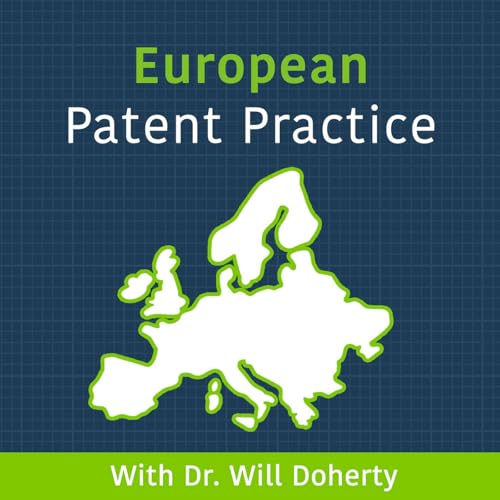What are your options for protecting inventions across Europe? In this month’s episode, we’re taking a journey across the pond with a discussion on European Patent Practice. This episode is part two of a series we’re doing on International Patenting and follows Ashley’s exceptional Travel Guide to Foreign Protection from earlier this season.
Even in a globalized economy, patents are still nationalized documents. For example, a U.S. patent only grants the right to exclude others from making, using, selling, and importing the claimed invention within the United States. It has no bearing on activities in Europe, Canada, Mexico, China, or anywhere else in the world. To restrict activities there, you will typically need a patent granted in each relevant country. This can boil down to filing and prosecution on a per-country basis. However, those seeking protection in Europe do have some additional options for a single application granting protection in multiple nations.
** Guest Host: Dr. Will Doherty **
To help navigate the very complicated European landscape, we reached out to a good friend of Aurora’s—Dr. Will Doherty of Albright IP. And we’re so glad we did. In this episode, Will puts on an absolute masterclass on European patent practice.
Beyond being a great teacher with a sharp sense of classic British humor, Will is an experienced Chartered British Patent Attorney, European Patent Attorney, and IP Litigator. As a Patents Director at Albright, he prepares, files, and prosecutes patents with great success in a wide range of technical sectors globally, in addition to handling patent infringement matters. Will is a member of and regulated by IPReg, the independent professional regulatory body in the UK for Patent and Trademark Attorneys. He is also a long-standing member of the Chartered Institute of Patent Attorneys in the UK and the European Patent Institute. Will’s academic background is in Chemistry, with a doctorate in Physical and Theoretical Chemistry.
** Episode Overview **
⦿ European patent process, EPO participating countries, key players in the system, and how it all compares to USPTO and PCT processes.
⦿ Strategic considerations around filing in individual countries vs. using EPO, translation implications, cost considerations, fee timelines, filing timeline implications, market alignment, and rights enforcement.
⦿ Interplay with newer Unitary Patents and the Unitary Patent Court.
⦿ Key practitioner takeaways, including some insightful claim drafting tips for medical-type applications, which are viewed very differently in Europe than in the U.S.
** Mossoff Minute: Price Controls on Standardized Technologies **
In this month's Mossoff Minute, Professor Adam Mossoff is discussing an issue that could cause huge problems in Europe and for the global innovation economy, more broadly.
** Follow Aurora Patents **
⦿ Home: https://www.aurorapatents.com/
⦿ Twitter: https://twitter.com/AuroraPatents
⦿ LinkedIn: https://www.linkedin.com/company/aurora-cg/
⦿ Facebook: https://www.facebook.com/aurorapatents/
⦿ Instagram: https://www.instagram.com/aurorapatents/
⦿ TikTok: https://www.tiktok.com/@aurorapatents
⦿ YouTube: https://www.youtube.com/@aurorapatents/
Let us know what you think about this episode!
 Nov 7 20251 h et 21 min
Nov 7 20251 h et 21 min Sep 23 202550 min
Sep 23 202550 min 55 min
55 min 58 min
58 min 1 h et 15 min
1 h et 15 min 1 h et 11 min
1 h et 11 min 1 h et 16 min
1 h et 16 min Dec 6 20241 h et 12 min
Dec 6 20241 h et 12 min
